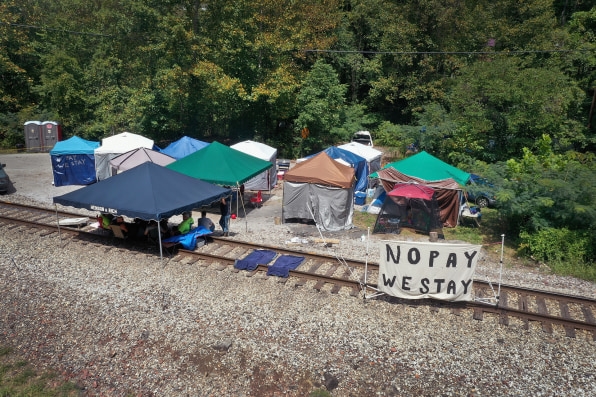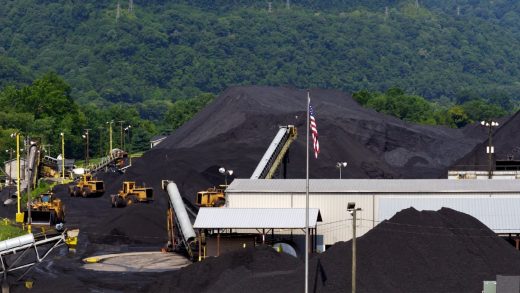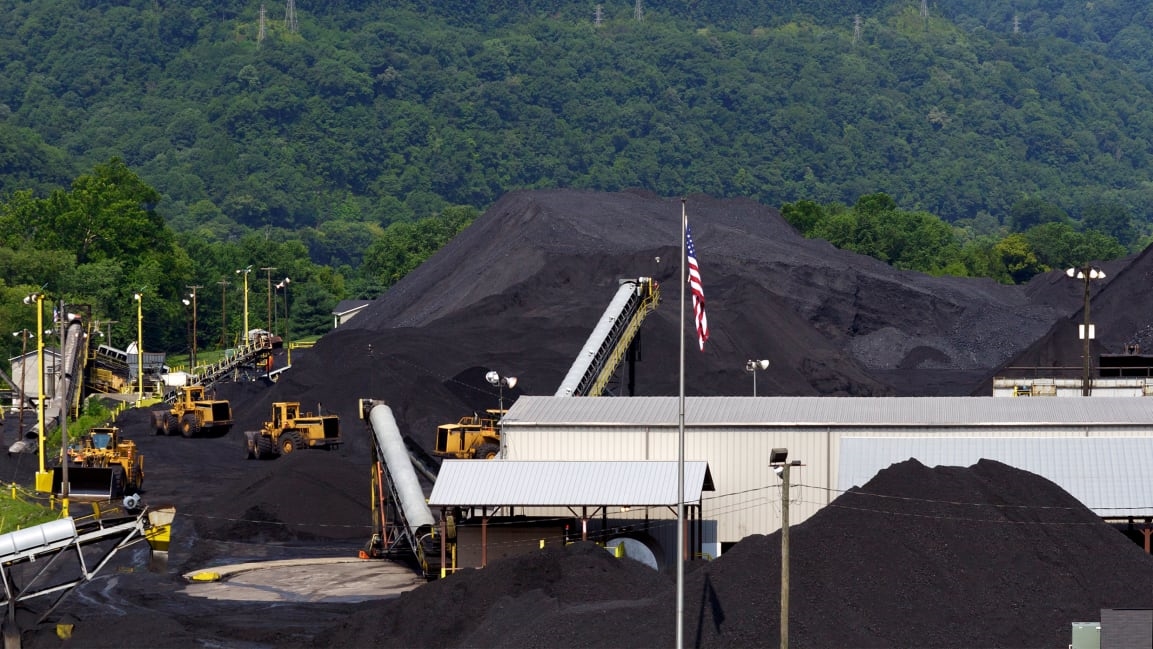As coal companies fail, the workers are being left with nothing
If you ask her, Peggy Stanley can give you a rough running tally of the money that Blackjewel Mining owes her husband.
First, there are the paychecks. One was supposed to be sent out mid-July, after the company filed for bankruptcy, but it never came. There’s also the one that was sent out in the middle of June but bounced two weeks later when the company ran out of funds, causing the Stanleys’ account to be frozen. Peggy estimates those checks amount to around $5,000.
There’s also the money in their 401k, which the couple has been unable to access. And then there’s the mining equipment. Peggy’s husband, John, was on his shift at a mine in western Virginia when he was told to stop working on July 1. He left his supplies—including two pairs of boots, a light, and a hard hat—in his locker, thinking he could come back later to get them.
Since then, the gates have been locked. No employees have been allowed to go in, and Peggy says they were told the $400 worth of supplies in the locker had been stolen.
And for John and Peggy, who are in limbo as they wait for news about John’s job, every little bit of money counts right now.
“We’re wondering how we will pay the next bill or get food,” Peggy said.
The meltdown at Blackjewel, which currently owes millions of dollars to more than 1,000 workers in four different states, shows just how tenuous the coal industry can be for workers.
Six coal companies filed for bankruptcy in the last year, putting workers in dire straits. In 2018, only around 80,000 people nationally were employed at coal mines—the lowest level on record. The collapse of coal threatens not just miners, but their neighbors in mining communities. A recent analysis identified 26 counties so dependent on coal for employment and tax revenue that they risk “fiscal collapse” because of the continuing decline of the industry.
Around half of the big coal companies that have filed for bankruptcy since 2012, according to the Sierra Club, have filed for Chapter 11 bankruptcy. Unlike Chapter 7, which immediately shuts a company down, Chapter 11 allows companies to continue operating as they restructure.
Workers at Blackjewel were told that its parent company, Revelation Energy LLC, was filing for Chapter 11 on the morning of July 1. Many assumed they would be able to work through the restructuring process. But unbeknownst to the miners, the company was in a state of financial disarray. A court ruled that Revelation could not produce sufficient loans to keep funding the business during its bankruptcy hearings, leading to a cash crisis for the company. Court filings later revealed that CEO Jeff Hoops routinely moved millions of dollars between company and personal accounts to prevent checks from bouncing and had only consulted financial advisers a few days before filing for Chapter 11.

The Blackjewel meltdown recently gained national attention when a group of miners in Harlan County, Kentucky, blocked trains transporting Blackjewel coal to buyers. The protest, which began nearly two months ago, has garnered write-ups in outlets like the New York Times, the New Yorker, and Rolling Stone.
But the struggle is much bigger than Harlan County. Miners across the four states where Blackjewel had mines—Wyoming, Virginia, West Virginia and Kentucky—are in limbo, struggling financially as they await news about the company’s future.
Three former Blackjewel employees in Virginia are owed thousands of dollars and have been struggling to make ends meet since their paychecks bounced in July, they told Nexus Media News on Facebook. But, they say, they are still hoping to get their jobs back—or move on to different mining jobs.
One man said he began working for Blackjewel in late May, after leaving his job as a pharmacy technician. He asked to be identified by his middle name, Raymond, for this story, because he is applying for work at other mines and fears being blacklisted.
Raymond said that Blackjewel offered him more money than his previous employers and allowed him to obtain health insurance for his whole family. And while he had to work longer hours, he also was able to work closer to home, commuting to a mine in Jewell Ridge, Virginia.
Raymond said he had seen news about coal bankruptcies but was confident that Blackjewel would stay afloat. “I knew [bankruptcy] was a possibility, but I didn’t think it would happen so soon,” he said.
During his month at Blackjewel, Raymond said he could sense the company was having issues—he remembers that the mine couldn’t afford to buy some supplies—but he wasn’t aware of how dire the situation was.
“I was actually getting ready to leave my house for my shift when I was told not to come in,” he said. All in all, Raymond said, Blackjewel owes him around $4,000—including a bounced paycheck from the end of June and the first deposits into his 401k account.
Peggy Stanley said that after the bankruptcy, she and her husband, John, couldn’t afford the gas needed to get to the unemployment office in their hometown of Clintwood, Virginia, to collect the aid offered to miners. She also said they have had to sell hardware—weed whackers, lawnmowers, four-wheelers—to make ends meet.
The Stanleys’ experience shows how confusing the meltdown has been for hard-strapped employees. Workers were told their health insurance would last until August 31, but when Peggy went to the doctor in mid-August, her insurance didn’t go through. And while workers were assured they could liquidate their 401k plans, Peggy said they still haven’t seen any of the money they requested.
Joe Seals, a Blackjewel employee, has been working in mines for nearly 40 years. He said he has seen friends continue to work at companies going through bankruptcy, even as mines changed hands.
“Most are still working,” he said, “unlike the joke we are going through.”
Seals has been listening in on the Blackjewel bankruptcy proceedings since July, as the company struggles to sell its mines and straighten out its finances. He is hopeful that he will return to work and be paid the money he is owed once the mine where he was employed is sold to a new owner. But progress has been slow, and Seals is realistic about the timeline. “I don’t look to get any money from Blackjewel fast,” he said.
John Stanley is also anxiously waiting to hear if he will be able to return to work.
In August, Raymond applied for a job with his mine’s new owner, Rhino Energy, which said it would hire former employees. He hasn’t yet heard back. He said that he would prefer to land a well-paid mining job than return to a position at the pharmacy. But after two months of unemployment, Raymond said he would be willing to change careers to provide for his family.
“I hope we get to go back to work and resume our normal lives,” he said. “I want people to know how dirty we were done. Having our pay taken back after we worked for it and waiting almost two months for us to get it back. No one should be in a situation like this.”
Molly Taft writes for Nexus Media, a syndicated newswire covering climate, energy, policy, art, and culture. You can follow her @mollytaft.
(23)



